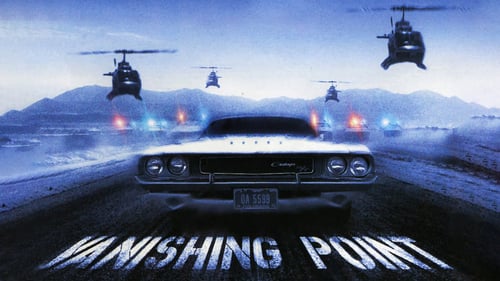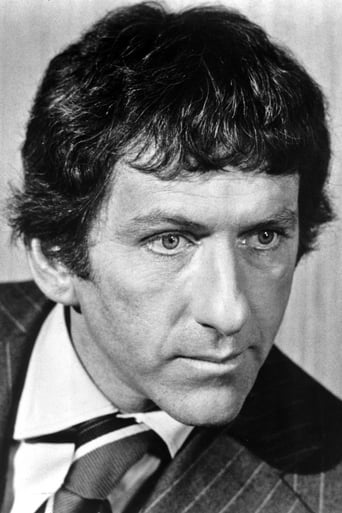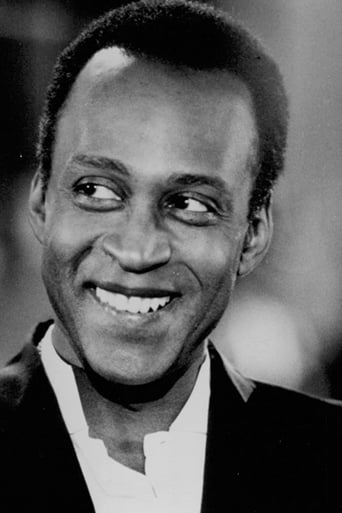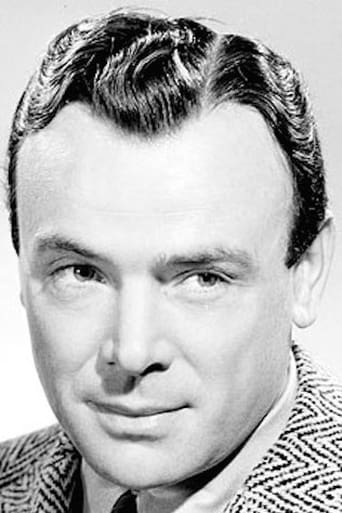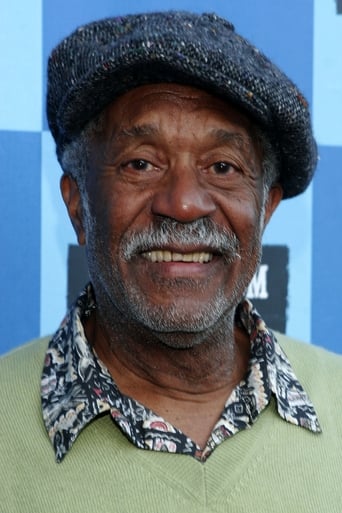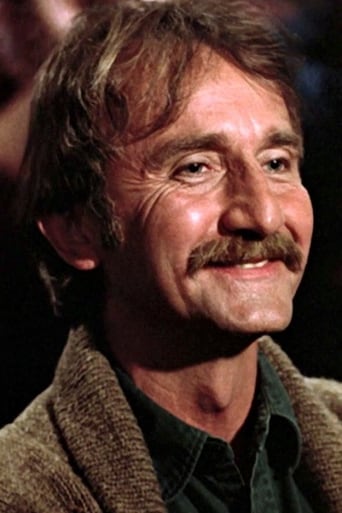Kattiera Nana
I think this is a new genre that they're all sort of working their way through it and haven't got all the kinks worked out yet but it's a genre that works for me.
XoWizIama
Excellent adaptation.
Brendon Jones
It’s fine. It's literally the definition of a fine movie. You’ve seen it before, you know every beat and outcome before the characters even do. Only question is how much escapism you’re looking for.
BA_Harrison
Kowalski (Barry Newman) is a speed freak in more ways than one, popping uppers so that he drive 24/7, having bet his drug dealer that he can deliver a supercharged car to California in record time; in doing so, he becomes a wanted man by the police.The car chase is a staple of the action movie genre, but Vanishing Point, by director Richard C. Sarafian, IS a car chase - the whole damn thing! As such, the plot is virtually non-existant, the film largely reliant on the vehicular action which sadly isn't jaw-dropping enough to sustain interest for almost 100 minutes.Being a product of the hippie generation, the whole thing is given a pseudomythological, existentialist vibe, in which driver Kowalski is elevated to legendary anti-hero status by DJ Super Soul (Cleavon Little), and there are plenty of off-beat characters along the way, all of which has secured the film a cult following, but I found the whole thing highly over-rated and ultimately pretty boring.On a more positive note, the cinematography is great, while the mythical road warrior angle and much of the shots seem to have influenced George Miller's Mad Max movies (leading to Fury Road, which for me, is the ultimate car-chase movie).
Wuchak
Released in 1971, "Vanishing Point" stars Barry Newman as Kowalski, a pill-popping former racer and police officer, who bets that he can deliver a supercharged car from Denver to San Francisco in 15 hours. The police in four states try to apprehend him as a DJ (Cleavon Little) supports him on the airwaves. Dean Jagger plays a geezer Kowalski runs into in the desert.This is a cult flick about the adventures of a rebel without a cause. While it has similarities to 1969's "Easy Rider," it's not as compelling and the subtext isn't as good (see my review of "Easy Rider").The story is a big middle finger to what was called "the establishment" at a time when the Vietnam War was making a wreck of America's social cohesion. Kowalski was part of that establishment when he was a cop, but became disillusioned after he exposed corruption and was punished for it, but heralded by the counterculture. Kowalski had seen the underbelly of the "pig" and didn't want to be part of it. At the beginning he drives off the road and you see him looking at some derelict vehicles. He increasingly realizes HE is a derelict on the side of the road with nowhere to go. What better next stop than oblivion? The climax is his *beep* off moment to go out on HIS terms. Three years later "Dirty Mary, Crazy Larry" sorta ripped it off. While that movie lacks the interesting (and ambiguous) subtext of "Vanishing Point," it's a more compelling watch. Despite the many car chases, "Vanishing Point" is surreal and even languid, embellished by a listless score (e.g the opening) and acid rock tracks throughout; while I don't like the former, most of the latter tracks are good and fit the ambiance of the movie.Then there's the naked blond on the motorcycle sequence. Someone incredulously asked: "How could he possibly turn down a sexy naked blonde? What's his problem?!" I guess sexiness is in the eye of the beholder because I didn't find her all that sexy. Sure, she has a pretty face, but her body is nearly as un-curvy as a 12 year-old girl. But some guys prefer thinner women and that's cool; to each his own. In addition, Kowalski was still grieving over his true love. Moreover, the naked blond didn't play the game of seduction, which takes time and imagination. Instead she prematurely throws her entire hand on the table and it simply doesn't turn Kowalski on. Lastly, despite it being the "free love" era (1970), Kowalski was much older (and arguably nobler) than the average hippie; as such, he didn't feel it proper to take advantage of the mate of the guy who was selflessly helping him (at least not without his clear permission).The movie runs 99 minutes and was shot in Colorado, Utah, Nevada and Arizona.GRADE: B- COMMENTARY ON THE MEANING ***SPOILER ALERT*** (Don't read further unless you've seen the movie) In an interview Barry Newman very seriously explained Kowalski's actions at the end: "He thought he could make it through; and that was the reason for the smile just prior to the impact." I don't question this since the actor himself would have more insights about the movie than the viewer, but even his answer is ambiguous. It could mean (and probably does) that Kowalski thought he could make it through to the other side, i.e. leave the physical plane for the spiritual one and the (possible) freedom thereof. After all, he sees "the light" between the blades of the bulldozers while approaching. Keep in mind that Kowalski was hopped up on a lot of drugs. As such, he doesn't commit suicide in the sense he wants to die, but rather kills himself in the accident because he BELIEVES he'll make it through; physically or spiritually, it doesn't matter. He believed.
Peter Harding
Much has been written about this movie, so the story is well known. The main character is a man known as Kowalski who delivers cars for a living. He has done other things though. He was a Vietnam veteran, a former car and bike racing driver and an ex cop, but in the film he collects a car on a Friday night in Colorado to drive it back to San Francisco, California, in 15 hours. ( a journey of some 1200 miles ).Given the car he is driving, a 1970 Dodge Challenger R/T 440ci V8 with a 4 speed manual transmission, which is also allegedly " hopped up to over 160 ", it is technically achievable, however, as he will be driving mainly on the back roads, no one seems to think he can do it. To help him, he visits a friend at the start and take a supply of speed and then gets on his way. And then the fun begins.So what is the movie really about?....Well, if you read all the other comments, and I recommend you do, you will see the main points of the plot and events, etc, so I wont be repeating these here, but to me, none of them get to the real raison d'etre of Kowalski and the movie.You first have to look at the time period in the US in 1970/71. The Vietnam war was still ongoing and by then the protest against it was very wide spread. In addition, there was still a very strong racism element and the US was in effect a Police state, only much more so than today.Then there was the Muscle care era which was at its peak in 1970/71, but by 1973, it was all but dead as emission laws made many of the big block engines illegal. The 70 Dodge Challenger R/T 440 ci V8 was one of the fastest in its day and with a 4 speed manual transmission was good for around 375 bhp in stock form, however, we are told that it is hopped up to do over 160 mph, ( standard was around 140 mph ) although no details of how it is tuned are given other than a couple of cops saying it is allegedly supercharged.Then he have Kowalski himself. On face value it would seem he has been a failure throughout his life ( well the bits we get to see in flash back ), but is he really?....No. The way he drives the Dodge shows you that he is in a different league to the cops and like all racing drivers, instead of slowing down, he changes down and accelerates to even faster speeds, so he isn't simply a good driver, he is a great driver. One of the very best.He doesn't just drive the car, he becomes part of it and it becomes part of him. He knows that whenever he changes down a gear or two, he has rocket like acceleration that will get him out of trouble and when the roads get closed off, he simply takes it out into the desert. As Super soul says, Kowalski is one of the last great American hero's and that is what the movie is really about.It is an epitaph to the last of the real hero's, Kowalski, the last of the real muscle cars and the last blast of a freedom that the police are trying to destroy. Kowalski knows that, just like the muscle car, his time has come and gone, so he pushes himself on an almost impossible journey that he knows will end in his death. After all, what is there to live for. Nothing except the speed and the race, and so at the end we see him smash into two bulldozers rather than surrender.On face value, this seems madness. He could easily stop and although he might be imprisoned for a while ( or maybe not as he hadn't really done anything wrong ), he would get to drive again, but for Kowalski its not so simplistic. He is on a one way journey and this is evident by the flash backs to the past events in his life. We see him as a racing car driver, a bike racer, when he was a cop and the death of his beloved. He whole life story is laid out along the road, so it is obvious that death is the only destination. This is further confirmed when we see the naked chick shows him all the news stories she has collected about him long before this journey. Its like she is an Angel saying, this was your life Kowalski.There is also the scene not in the US versions ), where he picks up a female hitchhiker ( death ) who spends the night with him and then mysteriously disappears before he wakes. Kowalski knows its coming, but rather than fear it, he drives into the next world at maximum speed, smiling and with him dies the last of the great muscle cars.Whether you agree with my synopsis or not, this is one of the great movies of all time and if you do nothing else in your life, you have to see this film and preferably on a big screen with surround sound.
eti55
I'll admit I wasn't sure quite what to make of this one when I first saw it. I had to view it more than once, and other user reviews actually gave me some insight (thanks everybody). What drew me to Vanishing Point in the first place was that it was a road flick featuring a fast car..and I LOVE movies with fast cars.The premise at the beginning seems simple enough. Kowalski (Barry Newman) is a speed freak (as in drugs AND driving) who makes his living delivering cars. He's just arrived back in Denver, to the place that employs him, after a delivery, and wants to head right back out on the road again to deliver a Dodge Challenger to San Francisco. His boss pleads with him to get some rest, as does his drug dealer, but Kowalski is determined. He bets his dealer the price of the speed he just bought that he can deliver the car in 15 hours (I figured it up..he would have to average 84.5 MPH with NO stops if he drove in a straight line).Where the movie gets interesting..and disturbing..is when it gets into WHY Kowalski is so determined to go on this ride. While he's tearing down the roadway in that waaay cool white Challenger, with police hot on his tail, we see flashes of his past, including his time as a war hero in Vietnam, his stint as a police officer who stops his partner from raping a teenage girl they'd picked up; also we see that for a time he raced cars and motorcycles (crashing more than once), and he even spent a period of time as a hippie/counterculture type (where he watched his girlfriend drown in the ocean). Two dynamics emerge: First, and this was brought up in another review, Kowalski is a guy who couldn't fit in anywhere, be it the "establishment" or the "counterculture." Second, and more important, in the flashbacks we see one bad thing after another happen to him, regardless of what he was doing or who he was with. This is what his life has come down to, and it's as if this pedal-to-the-metal trip to SF, come hell or high water, is all he has left.I would be remiss if I didn't mention the other main player in this, a blind disc jockey who goes by "Super Soul" (Cleavon Little in what may be the finest performance of his career). Super Soul feels an instant connection with Kowalski..calling him "the last American hero" as he races from police on his trek. In between songs he talks to Kowalski over the airwaves as if he can sense what the doomed driver is thinking. In the midst of this a bunch of redneck bullies break into the radio station and give Super Soul a horrific beating, and the movie doesn't really explain why. Maybe it's because they didn't like what Kowalski was doing and Super Soul being sympathetic to him, aggravated by the fact that they already hated Super Soul because he was black.This movie has been compared, erroneously in my opinion, to Easy Rider. Whereas the latter is clearly a movie centering on the 60s counterculture, Vanishing Point is a character study, both of Kowalski and Super Soul, two misfits..yet both honorable and decent men(perhaps that's what makes them misfits)..who seem doomed to never really belong anywhere. It's also a sort of requiem for the days gone by for fast cars and open roads in America. This is not a pleasant movie..it's dark, depressing and surreal..but interesting. And Kowalski drives one VERY cool..and fast..car.


